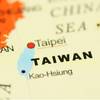Buckeye Pipeline Quietly Makes Key Acquisition
Houston-based logistic firm Buckeye Partners has spent more than $3.5 billion buying assets since 2010, transforming itself from a quiet regional pipeline utility into an emerging energy powerhouse.
But the acquisition that may best symbolize its evolution is one the company didn't tout to investors this summer: a Washington lobbyist.
After spending most of the past century pumping fuel from one place to another, the 128-year-old company has become a key player in the import and export of North American oil, with an unrivalled network of East Coast and Caribbean fuel depots and an expanding business loading crude oil from trains to tankers.
On Tuesday it closed an $860 million deal to buy a crude oil and condensate terminal in Corpus Christi, Texas, a big bet on the future expansion of crude exports from the Gulf Coast. For a FACTBOX see:
The spending spree has made Buckeye one of a handful of midstream energy companies whose operations touch nearly every major oil-policy issue being debated in Washington, from oil-by-rail transportation to the ban on U.S. crude exports and the Jones Act shipping law that requires use of costly U.S. oil tankers to carry American crude to domestic refiners.
In July, Buckeye retained Blank Rome Government Relations to represent it in the nation's capital, according to a lobbying registration filed last month. It was the first time records showed the company employing a lobbying firm.
Buckeye and Blank Rome did not respond to questions.
Once a part of Standard Oil, Buckeye is an unusual entrant to the growing list of U.S. firms like Pioneer Natural Resources and Enbridge Energy Partners which have sought a stronger voice in Washington with the onset of the boom in U.S. shale oil production that has upended trading patterns and is forcing a rethink of decades-old energy policies.
"This is a company that relies on fees it charges customers to use its infrastructure, so you'd think it would be the customers lobbying government," said Sandy Fielden, a RBN Energy analyst. "It really shows their growth."
Buckeye now has an arsenal of infrastructure assets for its growing trading operations to compete in the race to profit from the U.S. shale boom.
Industry experts say the decision underscores the regulatory hurdles facing Chief Executive Clark Smith, who has led the expansion drive since taking over in February 2012, on other hot-button issues.
Smith intends the firm's newly outfitted terminal in Perth Amboy, New Jersey, to become a gateway for exporting Canadian crude by rail, which environmentalists see as a loophole for the Keystone XL pipeline that they have spent years fighting to stop. The terminal, which it bought from Chevron, may receive its first train of crude as soon as this week, according to a person familiar with the matter.
The Canadian crude could then be shipped for blending to Buckeye's BORCO oil terminal in the Bahamas, which is already being used to avoid using U.S. tankers to import blended gasoline, much to the chagrin of a domestic shipping industry facing growing pressure to ease the Jones Act.
GROWTH
Buckeye has transformed itself into an international logistics heavyweight with capacity to store 70 million barrels of oil from New York to Texas and the Caribbean, and access to pivotal import and export terminals.
Revenue is up ten-fold since 2007 to more than $5 billion last year. Its share price is catching up with other midstream giants like Enterprise Product Partners and Plains All American that were better placed to capitalize on changing domestic oil flows arising from the shale boom.
"The company has historically been limited to the East Coast and Mid-West markets, but now they're expanding in Texas and elsewhere," said one analyst who was not authorized to speak to the media. "They see something. We'll see if it works."
The acquisitions have also allowed Buckeye to grow beyond its core business, with revenue from crude oil-related operations set to hit $100 million this year, from nothing in 2010, it said last month.
Buckeye's trading division has bulked up, hiring a senior trading and supply executive, William Hollis, in June from oil giant BP Plc to run the group known as Merchant Services. It also hired a senior PetroChina trader, Jonathan Novitsky.
Earlier this month, it said it would buy Trafigura AG's condensate processing plants and a marine terminal in Corpus Christi, putting itself on the front lines of a major debate over easing a four decade old U.S. ban on exporting crude oil from burgeoning shale fields.
The U.S. Commerce Department gave approval earlier this year to two companies to export condensate, leading many companies, including Trafigura, to seek similar approval.
BLENDING RULES
Buckeye may also be enlisting the lobbyists to weigh in on U.S. technical rules on the blending of crude and fuel, activities that can have a huge impact on what type of oil can be traded, and how it is shipped.
CEO Smith told analysts in May that he anticipates the "possibility to complement" exports of Canadian crude with its aggregation and blending services at BORCO.
The lobbying firm may help Buckeye ensure "they follow the rules - whatever they really are," said one trader.
Earlier this year U.S. Customs ruled that traders could use lower-cost foreign ships to export certain blending components of gasoline to BORCO and ship it back to the United States as a finished fuel under specific conditions, circumventing the Jones Act.
Blank Rome, which has a separate law firm with a division that specializes in maritime law, represented Buckeye in seeking that ruling, a law firm spokeswoman confirmed.
By Jarrett Renshaw










